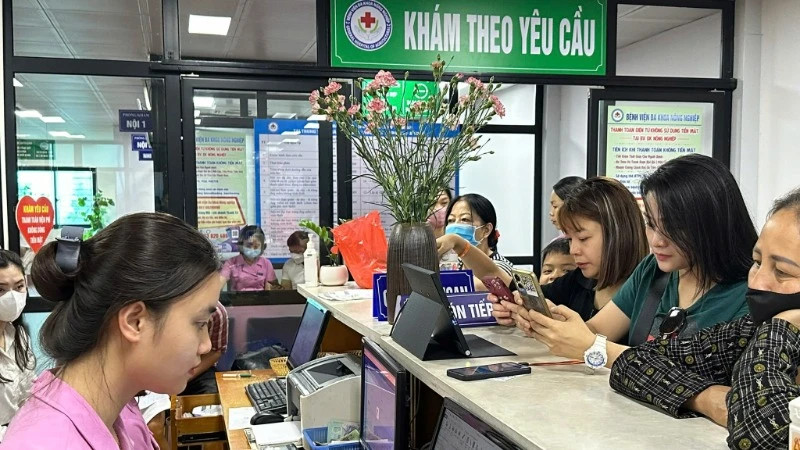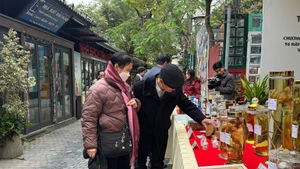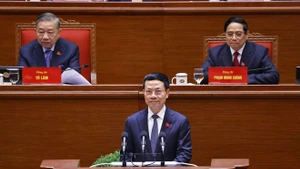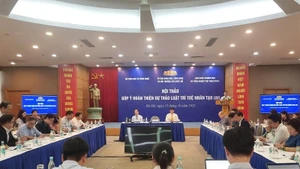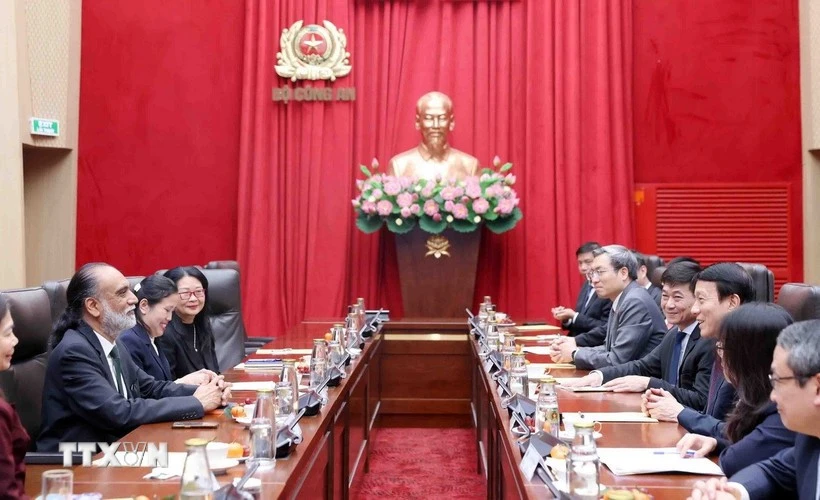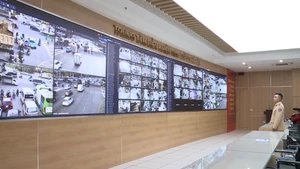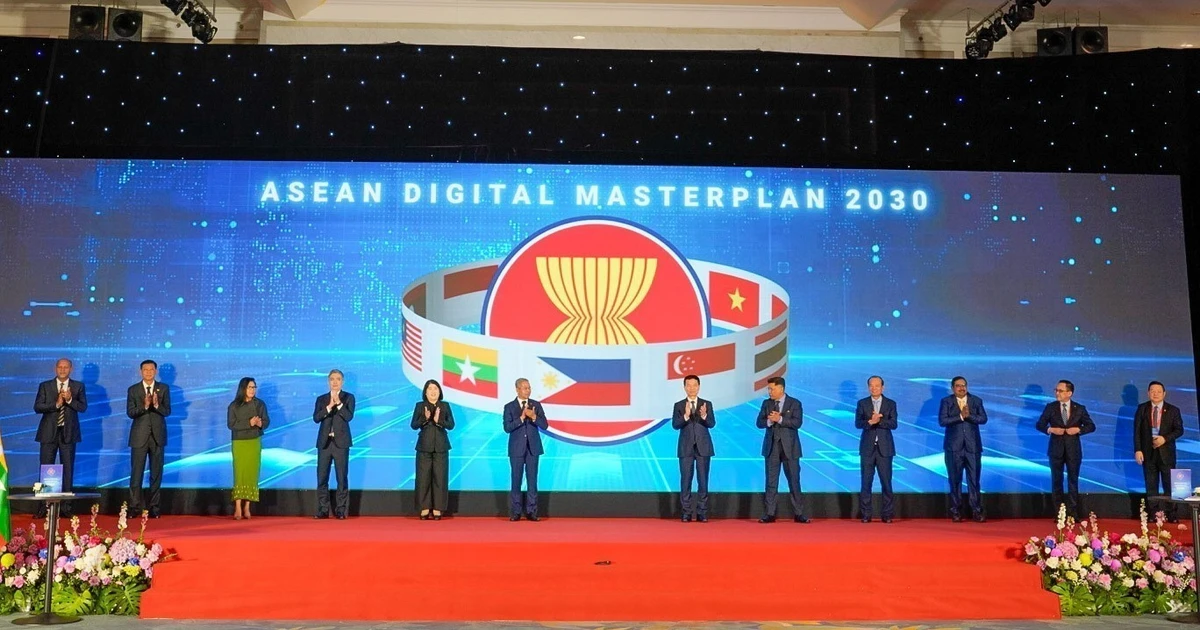That is the digital transformation revolution, applying science and technology to restructure production relations in accordance with the remarkable progress of productive forces.
Digital transformation is not simply the application of digital technology to socio-economic activities but also the process of establishing a new, advanced and modern mode of production.
According to the General Secretary, the digital transformation process needs to be carried out comprehensively and synchronously, promoting the strength of modern productive forces and ensuring the good nature of the socialist regime, suitable to the specific conditions of Vietnam in the new era.
To do so, the heads of Party committees, authorities, agencies, enterprises and people must have full awareness, unity, responsibility and determination to carry out the digital transformation process.
The reality of the application of information technology in medical examination and treatment at the Agricultural General Hospital under the Ministry of Agriculture and Rural Development shows that when the Party committees and leaders have the right and sufficient awareness, unity of determination and action, the transformation of thinking and working methods, no matter how difficult, becomes feasible and creates opportunities for themselves in the trend of competition and development.
Party Secretary, Hospital Director, and People's Physician Ha Huu Tung said that implementing the policy of e-government and digitalisation in medical examination and treatment, Nong Nghiep General Hospital established a Steering Committee to implement the task in 2017.
The initial implementation of electronic medical records encountered many difficulties, and both patients and medical staff were confused and worried when no unit used electronic medical records to completely replace paper medical records.
Medical staff did not fully understand the importance and significance of applying information technology in medical examination and treatment, changing operations, and the lack of personal devices, storage systems, internet sources, and unsynchronised power sources.
With high determination, the hospital leaders and professional departments analysed and evaluated the advantages, difficulties, strengths, and weaknesses to devise an implementation plan.
While working, we solicited opinions and suggestions from various disciplines, supplementing them with reality, aiming to simplify professional operations while ensuring medical operations. Thanks to practical, appropriate solutions, unity and determination, the hospital has become one of the six pioneering units nationwide to successfully deploy electronic medical records.
The hospital has digitised the entire process of medical examinations and treatment with the electronic payment of hospital fees without using cash. Including synchronised, stored, and connected all data related to patients not only at the hospital but also with social insurance and health insurance agencies on inpatient and outpatient medical records, periodic health check-ups, and vaccinations.
They have also minimised administrative procedures and increased time for medical staff to examine, treat, care for, and advise patients. In particular, patients can register for examinations via phone, website, self-register via information kiosks, make appointments, and access personal health records anytime, anywhere.
The change in the implementation of electronic medical records, with user support functions, warning functions, decision support, and monitoring support, has created different effects, as shared by the Director of Agricultural General Hospital Ha Huu Tung, the quality of medical records has improved, increased the time for medical examination, especially the number of outpatients and inpatients.
This reduced costs of printing films, documents, ink, and machines for printing and storing records, estimated to save tens of billions of VND each year. Optimisation in administrative procedures helps people not to queue to pay hospital fees at the hospital bed through many diverse forms such as transfer by dynamic QR code, swipe card payment by POS, and mini POS. Currently, the rate of non-cash hospital fee payment at Agricultural General Hospital has reached more than 80%, the highest rate in the country.
The experience of the Agricultural General Hospital is a testament to the effectiveness of the Party and State's policies on implementing e-Government, financial transparency, and serving the people.
Continuing the achieved results, implementing the General Secretary’s direction with a mindset of constant innovation, from the Board of Directors to each employee, determined to update and apply the most advanced technologies, the Agricultural General Hospital not only aims to become the leading digital technology hospital in the region but also opens up a new direction for the development of the health sector.
